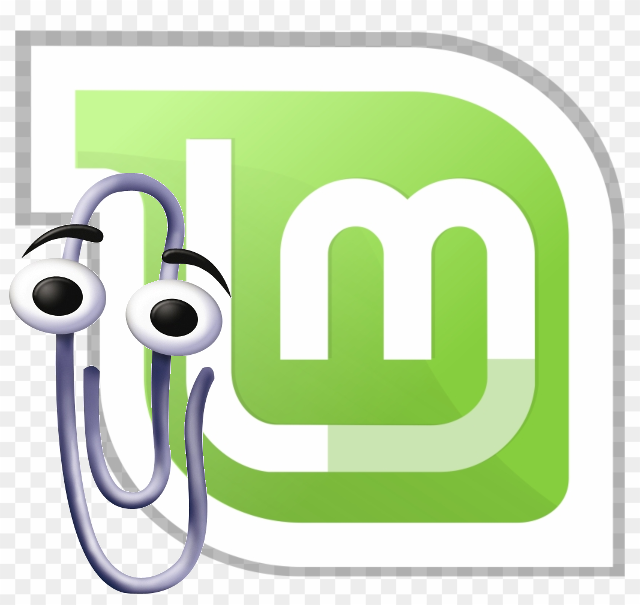
checks my sexual orientation
that tracks(my preferred distro)
I found the perfect set of instructions for enjoying the work that went into Ubuntu without dealing with snaps or canonical.
They can be found in on https://www.linuxmint.com/
I don’t know why people hate snap so much and at this point I’m afraid to ask.
Recently had an issue where I deployed something with Docker but it wasn’t working properly for a few people in the business. It turned out to be the people who installed Docker with Snap. The main reason to use Docker is so that it works the same across different OSs and setups, but Snap managed to come along and ruin that.
glances around nervously
That’s why I originally installed and tried to use snap…
I basically became a meme.
My mom always said I could be anything when I grew up!
It’s the worst possible implementation of distro independent binary delivery, highly dependent on a gazillion other things to barely operate, is counterintuitive as soon as you start using it, depends on canonical goodwill (which is always in a state of flux), actually mostly work everywhere but really only work correctly on a very limited subset of distributions, and requires a lot of work to basically achieve nothing more than what already existed OR any of the alternatives that are more lightweight, easier to implement for developers, easier to use of end users.
tl;dr: it’s not great
Basically, if a task calls for snap, use Flatpak
Close source, not easily uninstallable from an otherwise open system, dependency/the only way of using many programs. See the similarities with play services? Canonical is the Google of linux.
Got it, thanks. I am new to Linux but it seemed like it could be alright. They talked about apps being sandboxed and containerized. Not a good thing then, I take it? Is it just bad implementation?
They talked about apps being sandboxed and containerized
The idea is usually good. But not always; some application have to interact with others, requiring inordinate amount of tinkering to make them work: disabling some security features, giving access to way more mount points than required (usually doing so manually), etc. It’s also an issue when a piece of software requires access to some capabilities that are not exactly standardized, although ymmv on that point.
Also note that some of the promised features are not inherent to snap, but to snap implementation on a vanilla ubuntu system. Meaning snap can exist on other systems, but won’t do everything as advertised.
Also also, but that’s more of a discussion topic, there is the point of defining the attack model you want to defend against. Sandboxing everything is interesting on paper. But the amount of hassle vs. the actual benefits, especially for individual computers, doubly so on non tech-savvy users that will likely just follow whatever tutorial is available online to make things work when they seem to break, is not great.
Relatively simpler solutions, like flatpak, mitigate some of the most annoying points to improve usability by end-users. AppImage goes a step further by just being the program and his dependency running raw. And then there’s the native OS packaging system; this should be the simplest for end users, but there’s usually no sandboxing (although it is possible to do), and requires more work from developers/maintainers. It’s a matter of compromises. But snap is on the far end while being not very good and very annoying, which irks people.
Amazing explanation! Thank you!!
Bad implementation, flatpak is much better or just normal packages
Thanks for the clarification! Could never get comfortable with Ubuntu when I’ve tried it. Sounds like I dodged a bullet!
Some people also hate systemd
systemd is (was, at this point) a big change, but improved to the point it feels like an upgrade over older solutions.
All the family of
systemd-*services that were re-implemented for the lulz, broke existing features for years, and barelly reached the level of what they are replacing, however, are like the worst idea ever, handled by some lunatics that truly believe they can do better from scratch than simple, standard software that had decades of improvement.I don’t see snap ever becoming better than flatpak at any point.
Is that the older friend of snap?
Almost any environment issue is because somehow snap fucked up some system configuration, and it can’t be undone
The hate for snap on Linux forums always felt weird to me, I’ve literally never had issues with Firefox snap. I understand being frustrated with it on the principle that it feels Windows-y to force it on the system, but the Firefox snap is packaged by Mozilla and bundles the latest Mesa libraries instead of using the older libraries from the Debian repos that don’t have the latest performance fixes, so its also faster than installing through .deb. And Mozilla has Debian repos for Firefox you can add to your sources.list if you really insist. There’s also nothing preventing you from installing Flatpak and using that on Ubuntu.
Try to use any native extension from your browser, integrate with external password managers, or use third-party PKCS tokens, and you’ll start having less fun.
For me it was the forced automatic updates that made me lose data or waste time numerous times. One was doing taxes, another a full rework of my LinkedIn when I was out of work. I’d complete everything on the web page, press enter, and be greeted with a page telling me to restart to continue using Firefox.
You also only have the ability to pause it, no actual stopping it.
exactly. i don’t want anything on linux to update automatically.
i want to
sudo apt update && sudo apt -y upgradeand watch the console go brrrrrrrr
That’s extremely weird, I’ve never heard of Firefox not letting you browse until you update. When snap auto-updates Firefox there’s usually a notification bubble asking to close your browser to update but you can dismiss it and keep browsing in my experience.
It did it to me enough that I blocked firefox from talking to mozilla. I put it on a squid proxy for a few weeks and harvested every mozilla related address it touched and blocked them all. No more updating when I didn’t want it and forcing me to reload in the middle of something.
i’ve always seen hate for it with reasons why
Debian is just Ubuntu before they add Snap.
Or, remove snap from Ubuntu:
# Remove snap if [ -n "$(which snap 2>/dev/null)" ]; then SNAPS=$(snap list |awk '{print $1}' |grep -v Name) for SNAP in ${SNAPS} do; snap remove ${SNAP}; done sudo systemctl stop snapd sudo systemctl stop snapd.socket sudo systemctl disable snapd sudo systemctl mask snapd sudo apt purge snapd -y sudo apt-mark hold snapd sudo cat <<EOF | sudo tee /etc/apt/preferences.d/nosnap.pref Package: snapd Pin: release a=* Pin-Priority: -10 EOF rm -rf ~/snap sudo rm -rf /snap sudo rm -rf /var/snap sudo rm -rf /var/lib/snapd # Add needed repositories sudo add-apt-repository ppa:mozillateam/ppa -y echo ' Package: * Pin: release o=LP-PPA-mozillateam Pin-Priority: 1001 Package: thunderbird Pin: version 2:1snap* Pin-Priority: -1 ' | sudo tee /etc/apt/preferences.d/thunderbird sudo add-apt-repository ppa:xtradeb/apps -y fiThat is a lot of code that could have been a single command.
replace newlines with semicolons
I would love to see a single command that removes snap, cleans disk, keeps snap from reinstalling, and adds repos to replace packages lost.
Kubuntu 25.10 minimal install doesnt put snaps on your system, a quick script later and I’ve got Firefox, Steam and Heroic official .deb files installed and running, then run this to make sure it never comes back:
sudo apt-mark hold snapd
on linux mint this strip is only two panels long
Is this something that happens on Ubuntu or something? My Debian system hasn’t pulled in any snap stuff to my knowledge.
Yup, it’s an Ubuntu thing.
No idea why someone would run Ubuntu and then be surprised that snaps are enabled.
EDIT:
Yes, I already knew that Canonical keeps re-enabling snaps even if you uninstall/disable it - my original statement still stands.Exactly. If you’re an Ubuntu user and don’t mind snaps, great. If you’re an Ubuntu user and hate snaps, why not just use one of the thousand other distros out there that don’t have snap?
It’s not that they’re enabled, it’s that they can re-enable themselves after updates even if the users disables Snaps and removes snapd.
Had this issue with Ubuntu on my Dads laptop before I switched it to Debian.
@fmstrat@lemmy.nowsci.com posted a how-to to get rid of snap permanently by using apt pinning:
404 :/
Strange. The link no longer works for me either. Anyway, it’s here under this post:
Debian is just Ubuntu before they add Snap.
Or, remove snap from Ubuntu:
…
My first mention. I’m honored.
Sounds like something Microsoft would do!
Its something capitalism does.
You didn’t hear that Microsoft is getting into Linux? They’re going to call it mi-cux
Ubuntu is propped up by Microsoft (Azure)
It’s about Snap being an impurgeable rootkit on your machine. It’s the same as Onedrive or Copilot on Windows.
On Ubuntu, even if you remove all snaps and snapd, apt commands are hijacked and will reinstall everything if you touch certain packages. The better solution is to not use anything from Canonical.
No idea why someone would run Ubuntu. Full Stop.
From my experience it is people who used Linux 15 years ago and are just now coming back
They missed the part where Ubuntu enshitified
For me it was the entry point, I heard everywhere it is the “beginners distro”. That was about 4 years ago, now sentiment changed and people are recommending Mint instead.
work requirement 😔
Still better than windows.
absolutely
…needs of shoe-horning linux on to microsoft device :(
TL;DR (Summary)
zr0 is expressing a flat rejection of Ubuntu as a valid Linux choice, likely due to Canonical’s decisions around Snap and other user-hostile defaults. They see no redeeming reason for anyone to run Ubuntu — especially with better alternatives like Debian or Arch available.List all said “decisions and defaults” that would incur such an unfavorable verdict from a seasonned linux user ?
- Snap Package System (snapd)
This feels to many like vendor lock-in — a betrayal of open-source ideals. - Data Collection (“Ubuntu Phone Home”)
Though anonymized, the default opt-in raised privacy concerns - Amazon Search Integration in Dash (Ubuntu 12.10–16.04)
Eventually removed, but left a lasting stain on Canonical’s reputation. - Abandoning MIR and Unity — Then Reversing
- Bundling Bloat / Non-Free Software by Default
- Canonical’s Commercial Focus
- LTS-Only Philosophy in Flavors and PPAs
- Centralized Development Model
Ubuntu is technically “open source,” but most decisions come top-down from Canonical.
Snap is developed behind closed doors, then pushed downstream. - System Resource Usage
Ubuntu’s GNOME desktop and background services (like Snap, Tracker, etc.) are heavy on RAM and CPU. - Difficulty Removing Canonical Components
Removing Snap, cloud-init, or motd-news (system message ads) often takes manual, repeated effort.
System update may reintroduce unwanted packages.
This gives a feeling of a system that’s working against the user.
Do you agree with that assessment user “zr0” ?
- Snap Package System (snapd)
My surprise would be something like “what’s snap didn’t I remove whatever that was”.
Around 2021, I regularly ran into this problem with the Firefox snap. It had various runtime issues, so I preferred the traditional deb package. I’d uninstall the snap then install the deb. Then, some days later, I’d find the snap was somehow installed again. This happened a few times before I realized that the deb was just installing the snap. Imo, that’s not a good design. Debs should be debs and snaps should be snaps.
Anyhow, I use Arch now, btw. Much more consistent experience.
Somewhat unorthodox but on my Deian system I’ve for a long time just installed the firefox tar.bz package from mozilla.org in /usr/local with /usr/local/firefox/firefox liinked to /usr/local/bin/firefox. Updated system wide whenever necessary. Lately I just installed the .deb from mozilla.org allowed it to add its’ own repo to /etc/apt/sources.list.d and have been living happily after.
Waiting for the day they finally drop it… … like unity … like mir … like ubuntu mobile (or whatever it was called)
I doubt it
They are way to invested to stop now
Tmobile has been trying to do that to me since yesterday. “Complete your setup” notification I deleted half a dozen times and the one time I mistapped brought up a bright magenta blank page but after closing I found they had shoved 8 game shortcuts into my system. Deleted those and the notification returned.had to disable the t-life notification to kill it
I’d recommend looking into LineageOS or other custom ROMs to nix that kind of bullshit
Snap is a pain in the ass eating the bandwidth when it’s low (like in roaming). Yeah I know I should move from ubuntu !
It also eats your RAM! My VPS has 512MB and I noticed snapd was running all the time and causing my programs to get oom killed
Wait, are you running Ubuntu on 512? Or do you actually need snap for some reason? Why run Ubuntu as your VPS?
Sorry, I’m not too knowledgeable. Actually asking.
It also kills validation. You think you know what’s installed, but you have 4 copies of it and 3 of them have been sploited and you have no clue.
All that shit - appimage, snaps, containers - they all hide versions and signed manifests from you while still being terrible in other ways.













